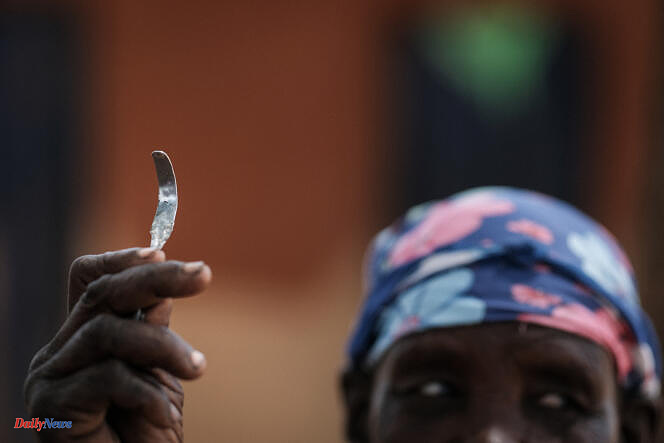The Gambia's National Assembly began on Monday, March 4, the examination of a law lifting the ban on female genital mutilation, in force since 2015.
Parliamentarian Almameh Gibba introduced the bill at first reading. The review was adjourned for a second reading scheduled for March 18. Prospects for adoption and application are uncertain.
The possibility of a return to the legalization of female genital mutilation (FGM) has divided Gambian opinion for months. A few dozen women and men demonstrated outside and inside Parliament for the lifting of the ban. They have made the common argument that what they call “female circumcision” is a deeply rooted tradition and that banning it violates their right to practice their customs.
On the contrary, many civil society organizations are urging the government to remain firm. Unicef recalled in a 2021 report that 76% of Gambian women aged 15 to 49 had undergone genital mutilation and 75% of Gambian women aged 15 to 19.
Former dictator Yahya Jammeh, now in exile, established by decree the ban on excision in 2015 in Gambian law, ensuring that it was not prescribed by Islam. Almost the entire population is Muslim.
The same year, Parliament adopted the first text specifically banning FGM, which is now punishable by sentences of up to three years in prison. Between 2018 and 2021, only one case of genital mutilation was brought before a court and no conviction or sanction was handed down, UNICEF wrote in its report.
Serious consequences for women's health
The dispute heated up in mid-2023 with the sentencing of three women to fines or prison terms. A religious leader paid the fines.
The Supreme Islamic Council (CIS) has issued a fatwa (opinion) affirming the legality of "female circumcision" under Islam and saying that it is not only an ancestral custom, but also "one of the virtues of Islam.” The CIS, the country's main Muslim organization, called on the government to reconsider the ban.
UNICEF characterizes female genital mutilation as the partial or total removal for non-medical reasons of the external genitalia (clitoris, labia majora and minora, sometimes with infibulation). They constitute a violation of the fundamental rights of girls and women, recognized by the African Union by signing the Maputo Protocol in 2005, which The Gambia ratified the same year. UNICEF estimates that 200 million girls and women are victims of these mutilations worldwide.
“As responsible people, we will ensure that the proposed amendment does not pass,” assured the deputy speaker of the Assembly, Seedy Njie, in the Standard newspaper. However, he suggested that prosecutions against perpetrators of genital mutilation be suspended while effective awareness campaigns are carried out.
Women, in fact, endure serious physiological complications and develop both physical and mental pathologies throughout their lives as a result of these mutilations. As for the little girls who are victims, some die during the operation, most often carried out in deplorable hygienic conditions. Consequences rarely mentioned during debates within communities.
The leader of the majority in the Assembly, Billay Tunkara, however, explains in the same newspaper that his camp needs to consult until the second reading, on March 18, before deciding on its position.
The International Bar Association, an association of lawyers, said in a press release dated January that the proposed law lifting the ban is unlikely to come into force because of The Gambia's international obligations on the rights of women and girls.












